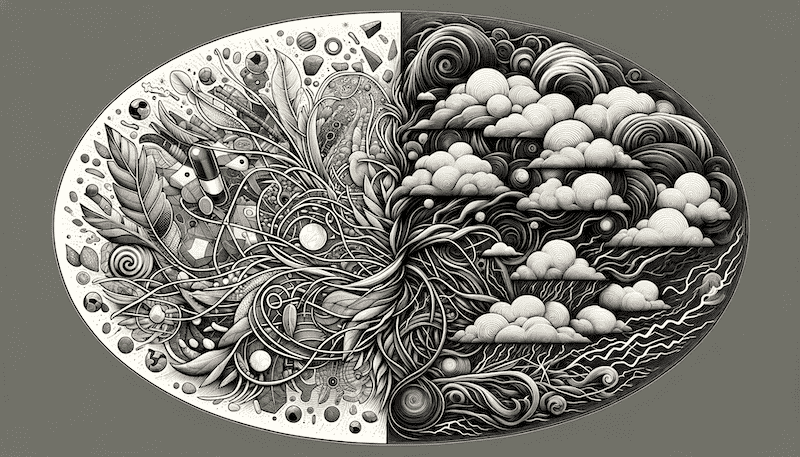The Correlation Between ADHD And Anxiety
December 15, 2022 - Reading time: 4 minutes

If you have ADHD, you probably know all too well what it's like to feel overloaded. It can be challenging to stay on top of all the balls that need to be kept in the air at once—work, home life, and social obligations.
Anxiety is a prevalent symptom for many ADHD sufferers. In fact, studies have revealed a significant correlation between the two ailments. The relationship between anxiety and ADHD will be discussed in this blog post. We'll also offer management advice for both conditions. Read on for some helpful advice if you're finding it difficult to keep up with life's demands.
What is Anxiety?
A state of anxiety is characterized by unease, worry, or fear. It may be slight or severe, and its duration may be brief or protracted. Physical signs of anxiety include shaking, sweating, and a rapid heartbeat. Additionally, they might experience mental symptoms like agitation, irritability, or tension. It may be difficult to focus or sleep when you're anxious.
People with ADHD often have anxiety. In fact, anxiety is one of the most common co-occurring conditions in people with ADHD. The link between ADHD and anxiety is unclear, but there are several theories. One theory is that ADHD and anxiety share some of the same brain mechanisms. Another theory is that having ADHD can lead to anxious feelings because of the challenges of living with ADHD.
If you have both ADHD and anxiety, you may find that your symptoms worsen during times of stress. This can make it hard to cope with everyday life. Treatment for both conditions is important. Medications and therapy can help you manage your symptoms and improve your quality of life.
Signs and Symptoms of Anxiety
The following are some common signs and symptoms of anxiety:
1. Feeling nervous, restless or tense
2. Having a sense of impending danger, doom or disaster
3. Having an increased heart rate
4. Breathing rapidly (hyperventilation)
5. Sweating
6. Trembling or shaking
7. Feeling weak or tired
8. Difficulty concentrating or thinking about anything other than the anxiety-provoking situation
9. Having trouble sleeping
The Correlation Between ADHD and Anxiety
There are a lot of children and adults who suffer from both ADHD and anxiety. It’s not surprising that the two disorders often go hand-in-hand because they share some common symptoms. For example, both conditions can cause someone to have difficulty concentrating, trouble sleeping, and feeling easily overwhelmed or stressed.
ADHD is a neurological disorder that affects attention and behavior. Anxiety is a mental health condition that causes fear, worry, and stress. Both disorders can make everyday activities challenging.
That’s higher than the general population, which has an anxiety disorder rate of about 18 percent. While it’s not clear why the two conditions so often occur together, experts believe it may be due to shared genetic risk factors or problems with brain chemistry.
Treating both ADHD and anxiety can be difficult because they often interact with each other in negative ways. For example, someone with ADHD may take risks that trigger their anxiety, or they may avoid situations that could help them manage their ADHD symptoms.
If you have both ADHD and anxiety, it’s important to work with a mental health professional who understands how to treat both conditions effectively. With the right treatment plan, you can learn to manage your symptoms and live a fulfilling life.
Treatments for ADHD and Anxiety
There are a variety of treatment options available for those who suffer from both ADHD and anxiety. Stimulant medications like Adderall and Ritalin are often prescribed to help with the symptoms of ADHD, while anti-anxiety medications like Xanax and Valium can be used to help control the anxiety.
There is a strong correlation between ADHD and anxiety, which means that if you have one, you're more likely to have the other. This can make life very difficult, as both conditions can be extremely debilitating. However, there are treatments available that can help you manage both conditions and improve your quality of life. If you think you might have ADHD and anxiety, talk to your doctor about getting evaluated and started on a treatment plan.

